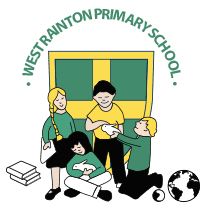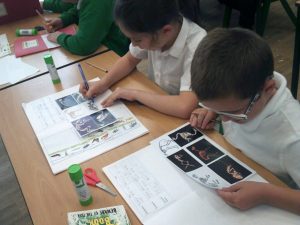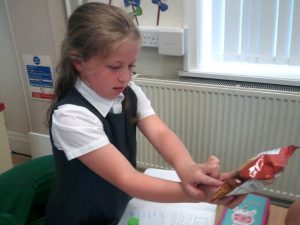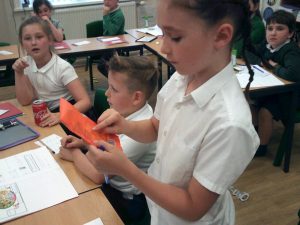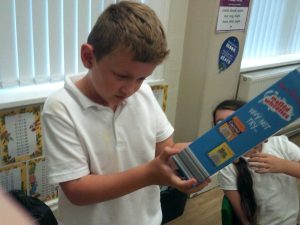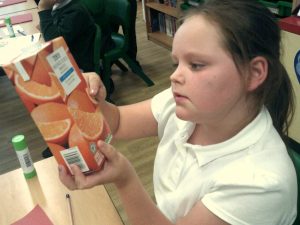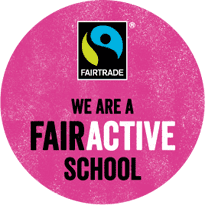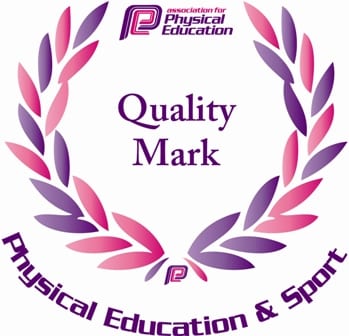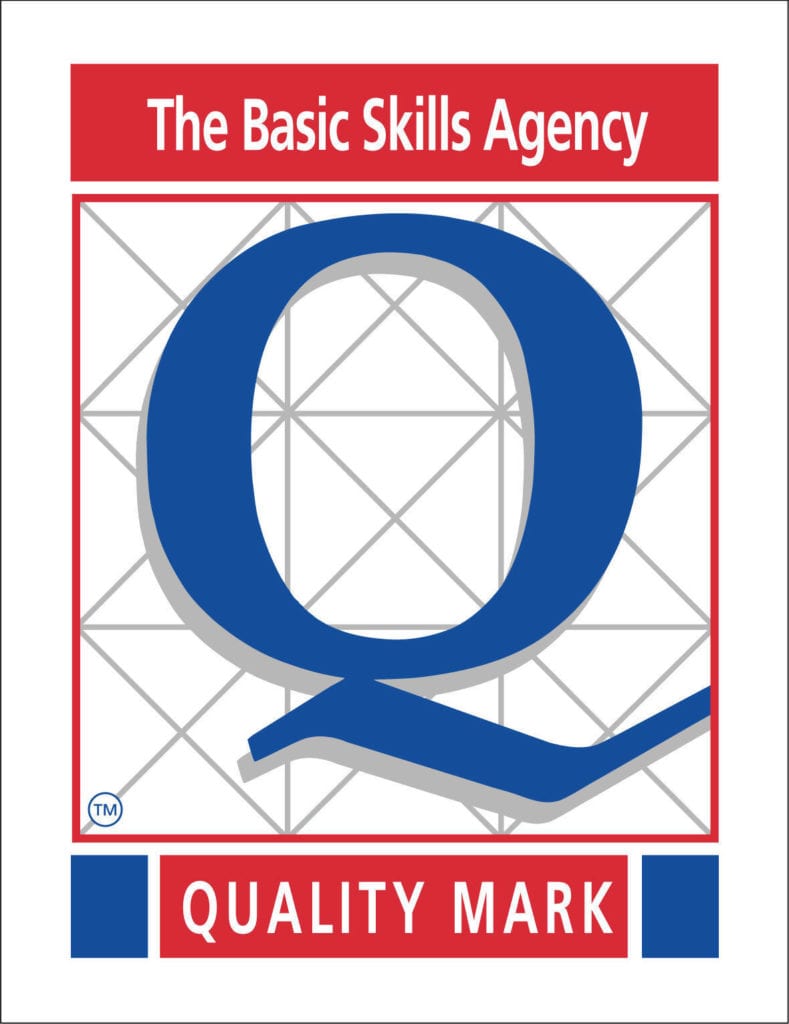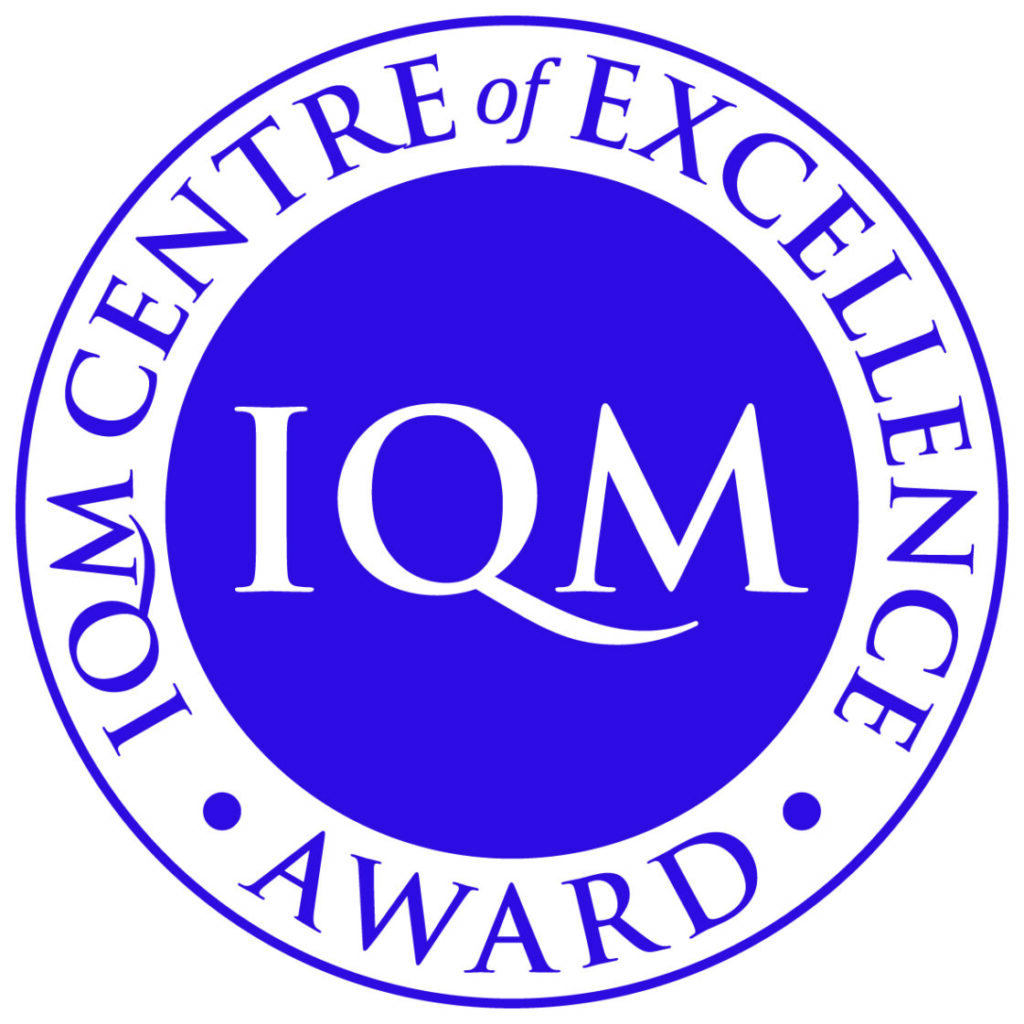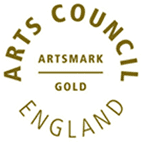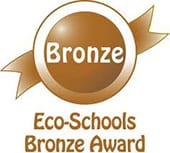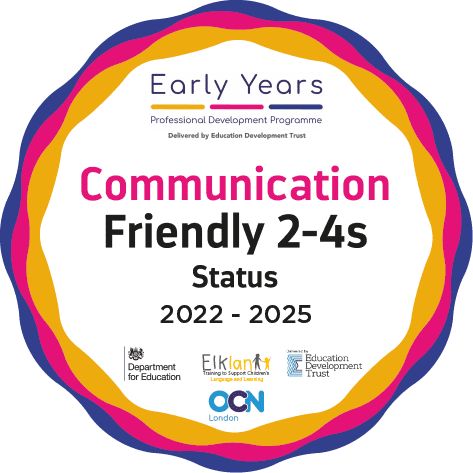Science
At West Rainton Primary School, we are delighted to offer an enriched science curriculum that fosters curiosity for the subject. Our science curriculum ensures that the children have the knowledge and skills required to move on in their education and for their future outside of school. Here at West Rainton our young students have the opportunity to learn scientific knowledge through a range of experiences including experiments, investigations and science based trips outside of school.
Leadership and intent of science at West Rainton
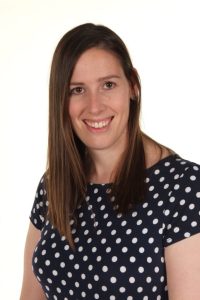
Mrs Sarah Newham
As subject leader at West Rainton Primary school, I believe that it is our responsibility to ignite and nurture pupils’ curiosity and encourage them to confidently explore and discover the world around them, so that they develop a deeper understanding of the world we live in. As subject leader I review the science curriculum delivered each year before I plan the next year’s curriculum. Due to the nature of the mixed classes I ensure that the objectives have been covered for each child and cohort. This does mean that some children will have the opportunity to strengthen and deepen their understanding of an objective.
Please see my full pen profile as subject leader here:
Below are the links to view our curriculum mapping and subject policy for science:
curriculum mapping for 2023.24
How history supports and promotes our overarching curriculum key drivers:
Aiming high
 We want our pupils to be inspired by our provision, and to ignite strong aspirations and high expectations of themselves and their future. Promotion of strong attendance is fundamental in this. Through the use of visits, visitors and enriching experiences, we will build knowledge and understanding of career possibilities as well as a hunger to embrace new and exciting opportunities. We will ensure we plan regular opportunities for children to develop self-belief and to see the benefits of taking risks and overcoming challenge. Our pupils will be supported to light up future pathways to fulfilling lives of employment choices, prosperity and future happiness. In science, this is achieved through the engaging and enriching opportunities on offer, such as exciting educational visits, like our most recent one to our local university. Children in all key stages have regular opportunities to showcase their investigative skills in a range of experiments linked to each unit of work. Our Science units also lead to discussions about possible career pathways.
We want our pupils to be inspired by our provision, and to ignite strong aspirations and high expectations of themselves and their future. Promotion of strong attendance is fundamental in this. Through the use of visits, visitors and enriching experiences, we will build knowledge and understanding of career possibilities as well as a hunger to embrace new and exciting opportunities. We will ensure we plan regular opportunities for children to develop self-belief and to see the benefits of taking risks and overcoming challenge. Our pupils will be supported to light up future pathways to fulfilling lives of employment choices, prosperity and future happiness. In science, this is achieved through the engaging and enriching opportunities on offer, such as exciting educational visits, like our most recent one to our local university. Children in all key stages have regular opportunities to showcase their investigative skills in a range of experiments linked to each unit of work. Our Science units also lead to discussions about possible career pathways.
Skills for learning and life
 We want pupils to leave our school with a bank of knowledge and a skill set specific to each individual subject, whilst also making transferable connections across other areas of learning and life. Fundamental to this, is a curriculum rich in core skills of language, vocabulary, communication, literacy and numeracy. Our pupils will be taught to be inquisitive, follow a line of enquiry to reach answers, and to recall and present their learning in a vibrant range of ways. Opportunities to develop resilience, organisation, leadership, teamwork, adaptability, patience and initiative are all interwoven into our subjects and wider school life in order for our children to adjust to new learning situations. In science, this is promoted through high level questioning and ample opportunities for teamwork and leadership. Children gain a bank of vocabulary and also answer a range of questions, focusing on how and why. Skills in patience, resilience and organisation are fostered within science.
We want pupils to leave our school with a bank of knowledge and a skill set specific to each individual subject, whilst also making transferable connections across other areas of learning and life. Fundamental to this, is a curriculum rich in core skills of language, vocabulary, communication, literacy and numeracy. Our pupils will be taught to be inquisitive, follow a line of enquiry to reach answers, and to recall and present their learning in a vibrant range of ways. Opportunities to develop resilience, organisation, leadership, teamwork, adaptability, patience and initiative are all interwoven into our subjects and wider school life in order for our children to adjust to new learning situations. In science, this is promoted through high level questioning and ample opportunities for teamwork and leadership. Children gain a bank of vocabulary and also answer a range of questions, focusing on how and why. Skills in patience, resilience and organisation are fostered within science.
Growing healthily
 Equally as important to us is the development of the whole child. Feeling safe, happy and valued is a fundamental right of all pupils. Our inclusive-rich ethos provides the backdrop to our personal development and well being provision which is skillfully interwoven into all that we do. All pupils are supported to develop a strong understanding of the importance of good physical and mental health, whilst also learning a whole range of factors and influences that can have a negative impact on us. Making, nurturing and maintaining healthy relationships, both on and offline, equips children with the strength and security to recognise what they want and need in life. We believe a strong understanding of e-safety forms a crucial part of being a healthy, well-rounded 21st century global citizen. In science, our lessons promote an understanding of current issues and how they can effect us. This could be through lessons on healthy eating, how exercise affects our bodies, or by developing a deeper understanding of nutrition or how our bodies work. Our children also learn how to work together as part of a group and extend their understanding of e-safety when completing research tasks online.
Equally as important to us is the development of the whole child. Feeling safe, happy and valued is a fundamental right of all pupils. Our inclusive-rich ethos provides the backdrop to our personal development and well being provision which is skillfully interwoven into all that we do. All pupils are supported to develop a strong understanding of the importance of good physical and mental health, whilst also learning a whole range of factors and influences that can have a negative impact on us. Making, nurturing and maintaining healthy relationships, both on and offline, equips children with the strength and security to recognise what they want and need in life. We believe a strong understanding of e-safety forms a crucial part of being a healthy, well-rounded 21st century global citizen. In science, our lessons promote an understanding of current issues and how they can effect us. This could be through lessons on healthy eating, how exercise affects our bodies, or by developing a deeper understanding of nutrition or how our bodies work. Our children also learn how to work together as part of a group and extend their understanding of e-safety when completing research tasks online.
Knowledge of the world
 When our pupils leave us at the end of Y6, we want them to feel so proud of themselves as people that they have the personal strength and self-confidence to find their place as positive global citizens. Through our carefully-planned provision, our pupils will experience a diverse and inclusive-rich experience that allows them to bank cultural capital as well as developing a secure understanding of the importance of equality. As well as a secure knowledge of British values, our pupils will have their minds and horizons broadened through diverse social, moral, spiritual and cultural experiences. Pupils will be regularly encouraged to revisit and extend their world-view, fostering tolerance, sensitivity and empathy to interact positively with others. The science curriculum map is carefully tailored so our children experience a diverse range of topics and experiments. The children also learn about different scientists and their impacts, and how they impacted on the world. Our children also develop an awareness and understanding of how scientists work collaboratively, across the globe, to solve key issues such as coronavirus and climate change.
When our pupils leave us at the end of Y6, we want them to feel so proud of themselves as people that they have the personal strength and self-confidence to find their place as positive global citizens. Through our carefully-planned provision, our pupils will experience a diverse and inclusive-rich experience that allows them to bank cultural capital as well as developing a secure understanding of the importance of equality. As well as a secure knowledge of British values, our pupils will have their minds and horizons broadened through diverse social, moral, spiritual and cultural experiences. Pupils will be regularly encouraged to revisit and extend their world-view, fostering tolerance, sensitivity and empathy to interact positively with others. The science curriculum map is carefully tailored so our children experience a diverse range of topics and experiments. The children also learn about different scientists and their impacts, and how they impacted on the world. Our children also develop an awareness and understanding of how scientists work collaboratively, across the globe, to solve key issues such as coronavirus and climate change.
How science is taught at West Rainton
At West Rainton Primary school, children have 2 hours of discrete science lessons per week. Each year group has areas of scientific study on which to focus. These can last for a half or full term. This year due to Covid-19, classes may have key concepts that they are revisiting throughout the year. Children in nursery and reception complete their science curriculum or understanding of the world through their topic work. Science lessons are structured with a mix of conceptual and investigative work and children complete at least two investigations per unit of work.
Every child records their science in a specific exercise book to evidence their learning and for future reference. This recorded work takes a variety of forms including; photographs, written explanations, diagrams as well as other activities.
As part of an Ogden Trust Primary Partnership, staff have opportunities for CPD and opportunities for shared experiences such as trips to the planetarium at Kielder Observatory and links with Durham University. The Ogden trust partnership also gives children the opportunity to discuss their learning with their peers from other schools at shared events such as the Science fair.
In science lessons, teachers share how the knowledge and skills that the children are developing can be used in society and as a career. Resources such as NUSTEM and Stem support teachers in demonstrating how science can be significant and can be linked with jobs. Industries are also invited in to make learning relevant.
The children in our school enjoy their science investigations and meeting different people from the various industries in our local area.
As part of our provision on offer, pupils with special educational needs are planned for very carefully in school. This is an important part of the science curriculum, as we strive to ensure that all of our pupils fully understand what they are being taught. This may involve a more flexible use of scientific vocabulary, or supported recording methods after investigations. It is always a priority for us to ensure that pupils are taught the skills and coverage that they need, rather than just following the national curriculum expectations. We are aware that this is not always what our pupils need – they need a curriculum that is suitable, challenging and relevant. This was highlighted when we were awarded the inclusive ‘Centre of Excellence’ award in late 2020. It is crucial for us that our pupils with SEND make progress, and move on from where they are in their learning journey. This provision may look very different to our other pupils, through differentiation and modification of the curriculum. Our decisions are made in consultation with the SENDCo, Mrs Firth, who advises and supports members of staff with their provision.
The impact of science at West Rainton
Following our lessons, children will develop an in-depth understanding of the world around them and an understanding of how major scientific ideas have played a vital role to prepare them for life in an increasingly scientific and technological world. The children at West Rainton become resilient, independent and curious scientists who ask questions and are eager to find things out for themselves. Through their learning, children will have an awareness of a range of scientific careers available to them. Children will leave for secondary school equipped with the science knowledge and skills needed to succeed in their education and futures.
- Class 5 looking at health and nutrition
- Class 5 looking at health and nutrition
- Class 5 looking at health and nutrition
- Class 5 looking at health and nutrition
- Class 5 looking at health and nutrition
- Class 5 looking at health and nutrition
